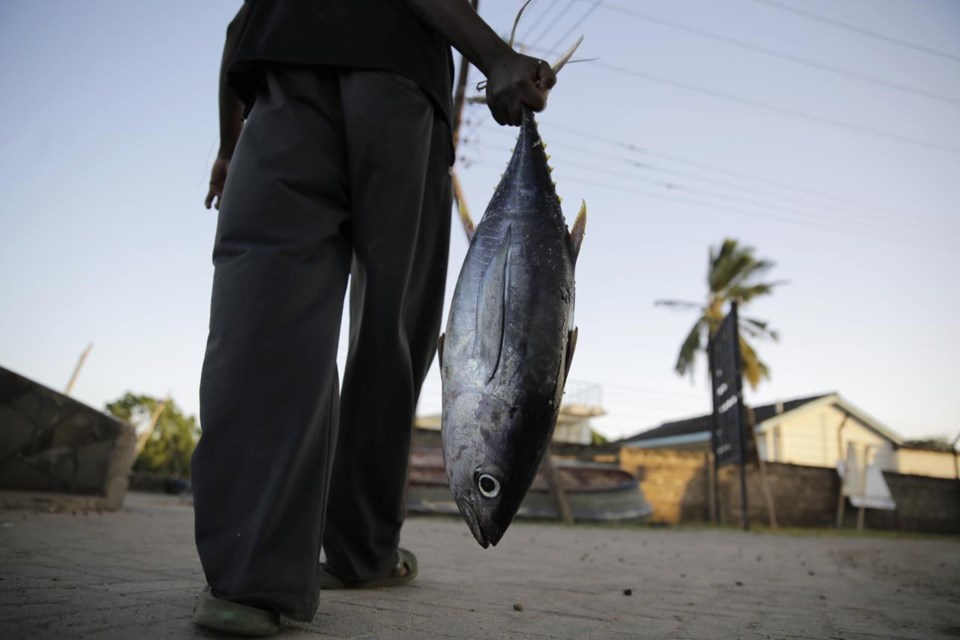MOMBASA, Kenya (AP) — Indian Ocean states agreed Monday to temporarily halt the use of industrial fishing gear that is drastically depleting tuna stocks in a win for countries that rely on smaller-scale fishing methods to prop up the livelihoods of communities across coastal regions.
The decision comes after three days of turbulent negotiations at the meeting of the 30-member Indian Ocean Tuna Commission in Mombasa, Kenya, where developing nations were at odds with the European Union, whose member states rely more heavily on purse seiners and long liners which are more destructive to the marine environment.
The new resolution "may finally give room to yellowfin and bigeye populations to rebuild,” said Frédéric Le Manach, the Scientific Director of the French ocean conservation group Bloom.
The new rules on tuna fisheries were nearly thwarted over the weekend when Kenya’s fisheries minister pulled support for the proposal, with some observers saying the change of heart may have been down to EU pressure. But 11 other states, led by the Indonesian delegation, pushed the resolution through.
“The persistence shown by all the proponents proves that unity can bring movement to a better direction for the conservation and management of tuna fisheries in the Indian Ocean,” Putuh Suadela, the head of the Indonesian delegation, told The Associated Press.
Maldivian fisheries expert Hussain Sinan said the new rules introduced by coastal states are “monumental” and will redefine local marine management in the region.
The EU has previously been accused of “colonial tendencies” in the Indian Ocean and subsidizing their fishing industry through unfair quotas and opaque fisheries. More than 200,000 metric tons of fish are caught annually in the Indian Ocean by its member states. The EU has 120 days to object to the resolution, according to U.N. rules.
“Coastal nations are still intimidated by the distant waters fishing nations, especially the EU,” said Le Manach, but added, “what happened over the past three days sends a very strong signal: the bullying days of the EU may be over.”
The EU is yet to issue a statement and the AP has asked for comment.
___
Associated Press climate and environmental coverage receives support from several private foundations. See more about AP’s climate initiative here. The AP is solely responsible for all content.
Wanjohi Kabukuru, The Associated Press



